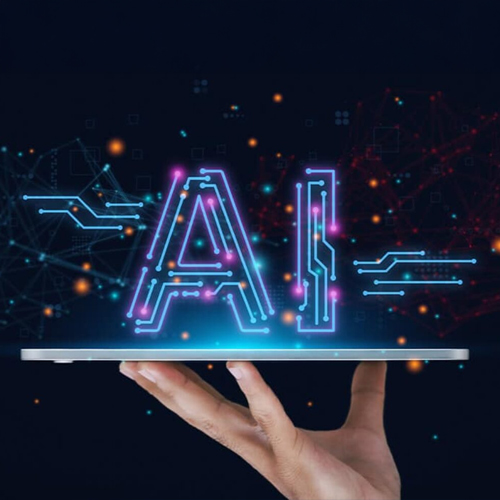
AI in iOS Development: What to Expect in 2025
Discover how Artificial Intelligence will shape the future of iOS app development in 2025 and beyond.
In 2025, AI integration in iOS development will lead to smarter, more efficient applications that are tailored to user needs. With advances in machine learning, automation, and personalized experiences, developers can expect a revolution in how apps are built and interact with users.
Understanding AI in iOS Development
AI is transforming iOS development by introducing smarter applications, improving user experiences, and enabling more intuitive interactions.
AI enables iOS apps to offer personalized content, predictive analytics, and dynamic interfaces that adapt to user preferences.
Enhanced Automation:
Machine learning algorithms automate tasks like image recognition, natural language processing, and data analysis, making apps smarter and more efficient.
Improved User Engagement:
With AI, apps can learn from user behavior to deliver tailored recommendations, notifications, and content.
Faster Development Cycles:
AI tools can automate code generation, testing, and debugging, reducing manual effort and speeding up app development.
Scalability and Adaptability:
AI-powered iOS apps can evolve and scale by integrating new features and responding to changing user needs.
This integration of AI brings iOS development into the future, offering smarter, more adaptable applications.
Transforming Industries with AI in iOS Development
AI is poised to revolutionize industries by enhancing iOS applications, driving innovation and efficiency.
AI will enable personalized healthcare apps, improving diagnostics and patient outcomes through real-time data processing.
E-Commerce Growth:
AI will optimize user experiences with personalized recommendations, chatbots, and smart inventory management, boosting customer satisfaction.
Finance & Fintech:
AI-powered apps will offer smarter financial tools, from fraud detection to personalized investment advice.
Entertainment & Media:
AI will enhance content curation, voice recognition, and video editing, creating more engaging experiences.
Smart Cities & IoT:
AI will drive smart home apps and IoT solutions, improving efficiency through automation and predictive maintenance.
Key Trends and Developments in AI for iOS Development
Stay ahead with the latest trends shaping AI integration in iOS apps, enhancing functionality and user experience.
AI will increasingly be used to tailor user experiences, providing smart recommendations based on behavior and preferences.
Natural Language Processing (NLP):
NLP advancements will enable more intuitive voice interfaces, enhancing user interaction with iOS apps through improved speech recognition.
AI for Enhanced Security:
AI will play a crucial role in strengthening app security, from facial recognition to anomaly detection and real-time threat identification.
Edge AI:
Processing AI tasks directly on the device, reducing latency and ensuring a more responsive and privacy-focused experience.
These trends are setting the stage for more intelligent, personalized, and secure iOS applications in the near future.
Practical Benefits for Businesses
AI integration in iOS development provides significant advantages for businesses, driving efficiency and innovation:
AI enables personalized experiences, keeping users engaged with tailored content and recommendations.
Faster Development:
AI-driven automation and tools streamline app development, reducing time-to-market and improving overall efficiency.
Cost Savings:
Automating tasks and optimizing app performance with AI can reduce long-term operational costs for businesses.
Enhanced Security:
AI-powered security features such as real-time threat detection provide businesses with robust protection for their apps.
Scalability:
AI solutions scale easily with business growth, adapting to increased user data and demands while maintaining optimal app performance.
By leveraging AI, businesses can enhance user satisfaction, optimize operations, and stay competitive in the ever-evolving iOS app market.
Challenges and Considerations
Integrating AI into iOS development presents several challenges that require careful planning.
Ensuring user data privacy while utilizing AI can be complex, necessitating compliance with regulations like GDPR.
Integration Complexity:
Integrating AI with existing iOS applications may involve significant technical challenges, requiring skilled developers.
Resource Intensity:
AI models can be resource-intensive, impacting app performance and requiring robust backend support.
Quality of AI Models:
The effectiveness of AI features relies on the quality of the underlying models and data, which may vary.
Ongoing Maintenance:
AI systems require regular updates and monitoring to maintain accuracy and performance over time.
Navigating these challenges is crucial for successful AI integration in iOS applications, ensuring a balance between innovation and practicality.
Best Practices for AI Integration in iOS Development
To successfully implement AI in iOS development, follow these best practices for optimal performance and smoother integration:
Establish clear use cases and goals for AI features to ensure that the implementation aligns with business needs and user expectations.
Focus on Data Quality:
AI systems rely on high-quality, clean data. Ensure that data collection, storage, and processing are robust for effective AI model training.
Leverage Pre-Trained Models:
Use pre-trained AI models to reduce development time and complexity, especially for common tasks like image recognition or natural language processing.
Optimize Performance:
AI models can be resource-heavy. Use efficient algorithms and ensure the app remains responsive, especially on mobile devices with limited resources.
Ensure Continuous Learning:
Integrate AI systems that can improve over time by incorporating user feedback and new data for model updates.
Test and Validate Models:
Regularly test AI models to ensure they function as expected across different user environments and that results are accurate.
Keep Privacy in Mind:
Ensure AI implementations comply with data privacy regulations, using secure data handling practices to protect user information.
By following these practices, iOS developers can effectively integrate AI into their apps, enhancing user experience while maintaining high performance and security.
Key Terms to Know
Technology that enables machines to simulate human intelligence, learning from data to make decisions and predictions.
Machine Learning (ML):
A subset of AI that involves training algorithms to identify patterns and make decisions without explicit programming.
Natural Language Processing (NLP):
A branch of AI focused on enabling machines to understand and interpret human language, often used in chatbots and voice assistants.
Computer Vision:
A field of AI that enables machines to interpret and make decisions based on visual data from the world, such as images or videos.
CoreML:
Apple’s framework for integrating machine learning models into iOS apps, allowing for on-device predictions.
TensorFlow Lite:
A lightweight version of TensorFlow designed for mobile and embedded devices, often used to deploy AI models in iOS apps.
AI-Powered Siri:
Apple’s voice assistant enhanced by AI, capable of understanding natural language commands and performing tasks through machine learning.
On-Device AI:
AI models processed locally on the device, providing faster results and improved privacy by not needing to send data to the cloud.
Deep Learning:
A subfield of machine learning that uses neural networks with many layers to analyze data, often used for complex tasks like image recognition.
AI Model Training:
The process of teaching AI systems to learn from data through algorithms, improving their ability to make accurate predictions or decisions.
The Future of AI in iOS Development: What’s Next?
The future of AI in iOS development is bright, with transformative trends shaping the way developers create smarter, more efficient apps:
AI models will increasingly run directly on iOS devices, enhancing performance, reducing reliance on cloud processing, and improving data privacy.
AI-Powered App Features:
Expect more advanced AI-driven functionalities in iOS apps, such as real-time language translation, voice assistants, and personalized recommendations.
Seamless AI Integration with Swift:
With Apple’s deepening integration of machine learning frameworks like CoreML and Swift, developers will find it easier to incorporate AI into apps, making iOS apps smarter and more intuitive.
Increased Use of AR and AI:
Augmented Reality (AR) will pair with AI to create highly immersive experiences, from AI-powered object detection to virtual try-ons and more.
Enhanced Automation with AI:
AI will streamline app development by automating tedious tasks, such as bug detection, UI testing, and even user feedback analysis.
With these developments, AI will revolutionize iOS app development, making apps more intelligent, responsive, and capable of anticipating user needs.
AI is set to revolutionize iOS development by enhancing app intelligence, performance, and user personalization. By embracing AI technologies, developers can create smarter, more efficient apps that meet the evolving demands of users, positioning themselves at the forefront of innovation in the mobile industry.


